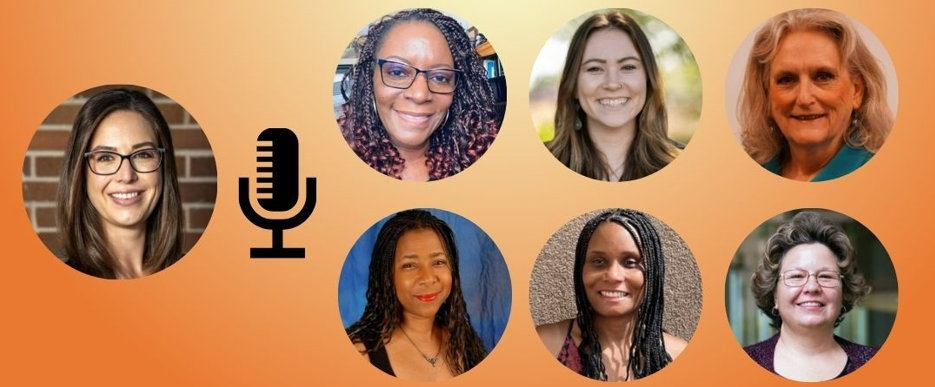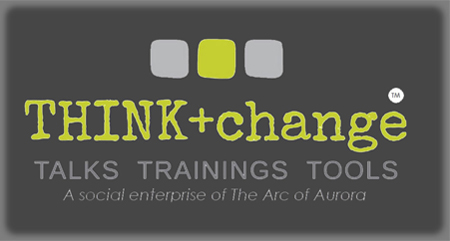 What happens when a young adult with a developmental disability (DD) turns 18? How can you and your young adult prepare for the transition into adulthood? It can be daunting to begin that planning, but it doesn’t have to be! There are plenty of resources and professionals out there to help you figure out how to navigate the educational transition plan, prepare for higher education or employment, help you get the right Home and Community-Based services, answer questions about guardianship and finances, and MUCH MORE! To help better navigate common questions, THINK+change interviewed professionals who have expertise in helping individuals with DD and their families transition into adulthood.
What happens when a young adult with a developmental disability (DD) turns 18? How can you and your young adult prepare for the transition into adulthood? It can be daunting to begin that planning, but it doesn’t have to be! There are plenty of resources and professionals out there to help you figure out how to navigate the educational transition plan, prepare for higher education or employment, help you get the right Home and Community-Based services, answer questions about guardianship and finances, and MUCH MORE! To help better navigate common questions, THINK+change interviewed professionals who have expertise in helping individuals with DD and their families transition into adulthood.Learn all the ins and outs by watching a vodcast (video) or listening to a podcast (audio) episode below!
This work was made possible through support from Arc Thrift Stores, Autism Society of Colorado, Colorado Access, Colorado Developmental Disabilities Council, Developmental Pathways, Firefly Autism, Rocky Mountain Civitan Club, and The Arc of Aurora.
*Please note that that the term ‘Community Centered Boards (CCBs)’ mentioned in this product has been replaced with ‘Case Management Agencies (CMAs)’ as of 2024. For further details, refer to this handout for a brief explanation, or explore the changes in more depth here.
-
What is a Transition Plan?
- Transition planning is a process to help students with an Individualized Education Program (IEP) decide what they want to do after high school. Join us for this episode where Gail Lott, EdD with the Colorado Department of Education, reviews common questions about the Transition Plan to help youth, families, and professionals be better prepared!
- Timestamps:
- 3:22 – Transition Plan Timeline
- 4:09 – Purpose of a Transition Plan
- 9:30 – IEP, 504, & Transition Plans
- 14:35 – Advocating for a Transition Plan
- 16:13 – Making the most of the Transition Plan Services
- Listen to “TRAININGS: E62: What is a Transition Plan” on Spreaker.
-
Higher Education & Accommodations
- Is higher education an option after high school for youth with intellectual and developmental disabilities (IDD)? Yes! Join THINK+change and Shayna Laing with Inclusive Higher Education as we review creating pathways to college for students with IDD to foster academic growth, social development, and career advancement in this episode.
- Timestamps:
- 2:08 – College Application Timeline
- 5:38 – Traditional Path with Accommodations in Higher Ed
- 8:45 – Utilizing an inclusive higher education program for students with IDD
- 10:55 – Disclosing a Disability to a Higher Ed Institution
- 14:30 – ADA Accommodations in Higher Ed
- 18:05 – Schools that Offer the Inclusive Higher Ed program in Colorado
- Resource mentioned: www.thinkcollege.net
- Listen to “TRAININGS: E63: Higher Ed and Accommodations” on Spreaker.
-
Home and Community-Based Services (HCBS)
- Let’s talk about Home and Community-Based Services (HCBS) for when a youth with IDD becomes an adult. Carol Meredith with The Arc Arapahoe, Douglas & Elbert Counties helps break it down in this episode so you can learn about how HCBS can help youth transitioning to adulthood and how they can get support with everyday activities like getting ready for the day, supervision, and more.
- Timestamps:
- 2:19 – HCBS Overview
- 4:10 – Getting on an HCBS waiver once you become an adult
- 8:51 – The HCBS Waiver options in Colorado
- 13:33 – Why consider HCBS?
- 17:58 – Living Arrangements on an HCBS Waiver
- Resources mentioned in this episode: Colorado Home and Community-Based Services (HCBS) for Children and Colorado Home and Community-Based Services (HCBS) Waiver List for Adults
- Listen to “TRAININGS: E64: Home and Community-Based Services” on Spreaker.
-
Guardianship & Finances
- What happens when a youth with an IDD turns 18? Are the parents still guardians? What happens with the youth’s finances and benefits once they become an adult? Yvette Plummer with Show and Tell shares alternatives to guardianship and what to expect when it comes to financial responsibilities.
- Timestamps:
- 2:45 – What happens to guardianship rights at age 18?
- 5:04 – Alternatives to Guardianship
- 10:06 – How public benefits change at age 18
13:56 – Reach out to Easterseals Community and Disability Services if you feel like you need more help understanding the details of SSI and SSDI. - 14:56 – Charge Room and Board beginning at age 18
- 17:50 – To learn more about the “asset limit” and how to save via Colorado ABLE accounts, check out our vodcast/podcast with Mike Keglovits from College Invest!
- 19:15 – Final Tips & Tricks from Yvette
- Listen to “TRAININGS: E65: Guardianship and Finances” on Spreaker.
-
Episode 5: Let’s Talk about Employment
- Is employment an option after high school for youth with developmental disabilities? Of course! Join THINK+change, Serina Gilbert, and Cheryl Carver with the Youth Services Program at the Division of Vocational Rehabilitation in Colorado as we talk about employment! DVR is in every state, and while programs and services may differ, DVR can assist individuals with disabilities to explore employment options.
- Timestamps:
- 2:24 – Division of Vocational Rehabilitation Overview
- 4:12 – Pre-Employment Services for youth with intellectual and developmental disabilities
- 7:13 – How DVR works with Schools
- 13:26 – How Services Are Provided
- 17:18 – How Families Can Contribute to Employment Services
- Listen to “TRAININGS: E66: Let’s Talk about Employment” on Spreaker.
